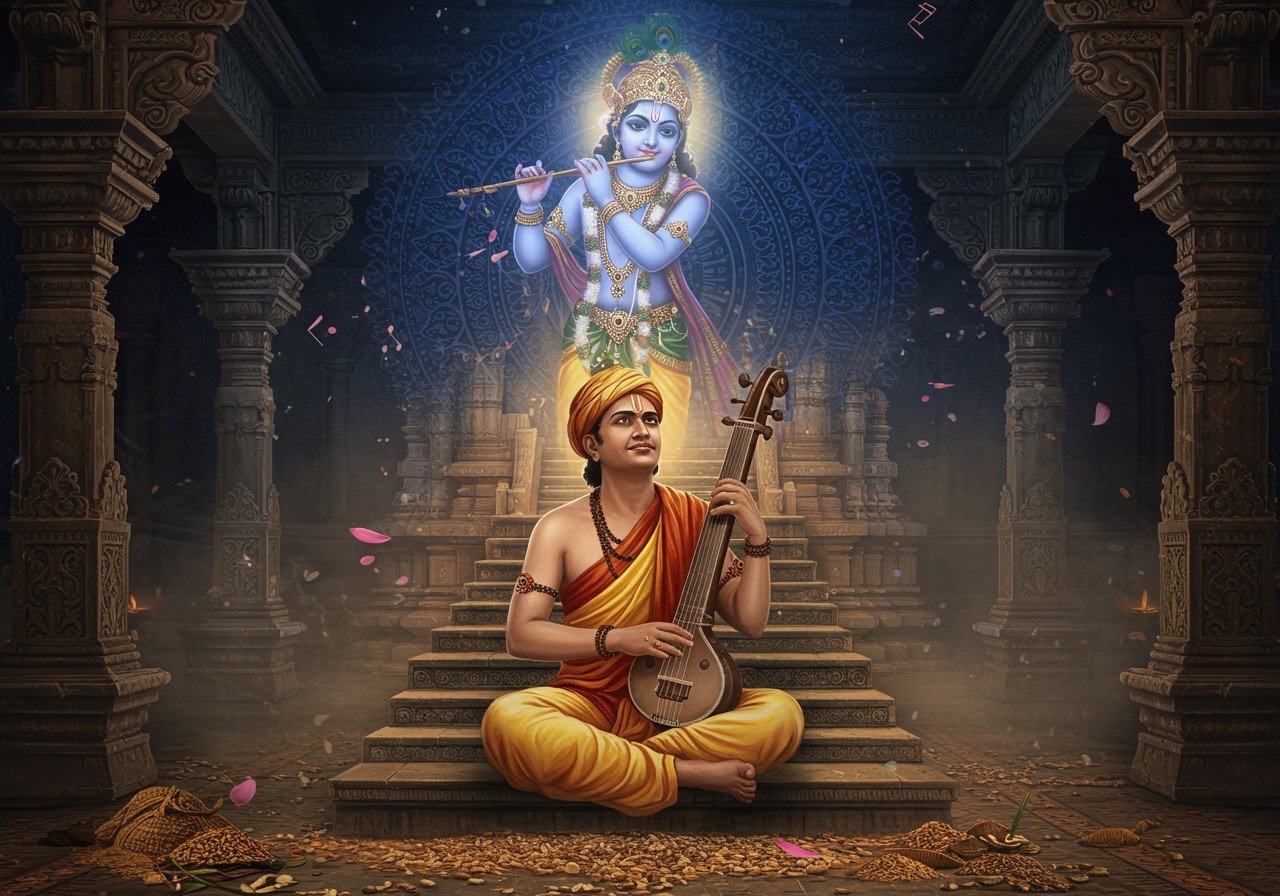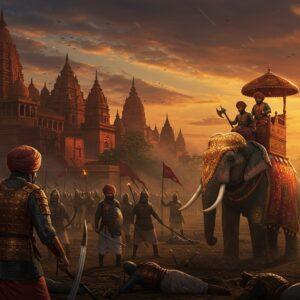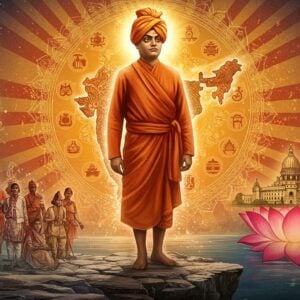
Kanaka Dasa (1509-1609), a revered Haridasa saint, holds a significant place in Indian spirituality and literature. Known for his profound devotion to Lord Krishna and his impactful social reforms, he left an enduring legacy. This guide delves into the life, philosophy, and teachings of this remarkable figure, offering insights into his spiritual journey and contributions.
Early Life and Spiritual Awakening
Born as Thimmappa Nayaka in 1509 in Baada village, Karnataka, Kanaka Dasa’s early life was steeped in the warrior traditions of the Kuruba community. His father, a chieftain, provided him with a strong foundation. Educated by Srinivasacharya, he became proficient in logic, grammar, and interpretation, skills that would later enhance his philosophical pursuits. A life-altering injury during his time as a warrior at Bankapura fort led him toward a spiritual path. This pivotal moment became the catalyst for his transformation from warrior to saint, inspiring him to dedicate his life to composing keerthanas and worshipping Lord Krishna.
A mystical encounter further solidified his spiritual journey. Kanaka Dasa recognized a beggar who visited him as Lord Hari. This divine encounter deepened his devotion and set the stage for his future as a spiritual leader. Seeking deeper connection, he moved to Kaginele village, installing the idol of Adikeshava in a new temple. This sacred space became the center of his spiritual practices. Kanaka Dasa eventually spent his final days in Tirupathi, immersed in devotion.
Philosophical Teachings and Social Reform
Kanaka Dasa’s philosophy revolved around bhakti (devotion) to Lord Krishna. He viewed Krishna as his guru and the embodiment of divine love. Beyond personal devotion, he actively championed social justice and equality, challenging the rigid caste system prevalent during his time. He advocated for a society rooted in compassion, working to uplift underprivileged communities and encouraging them to embrace positive change.
A key tenet of his teachings was the inherent equality of all souls in the eyes of the divine. He firmly believed that true spiritual liberation could only be achieved by shedding one’s ego. As a leading figure in the Bhakti movement, he emphasized a direct, personal connection with the divine over ritualistic practices. He stressed the importance of inner purity and sincere worship as pathways to spiritual growth.
- Devotion to Lord Krishna: He considered Lord Krishna as his guru and the embodiment of divine love, composing numerous keerthanas expressing his devotion.
- Beyond personal devotion, he actively challenged the prevailing caste system, advocating for equality and social justice across all communities.
- Social Reform: Kanaka Dasa believed that true spiritual liberation requires the shedding of ego. He emphasized inner purity and sincere worship as pathways to spiritual growth, inspiring followers to cultivate humility.
- His efforts to reform underprivileged communities included encouraging them to abandon outdated practices and embrace positive societal change.
- Equality and Humility: He believed that true spiritual liberation requires shedding one’s ego, emphasizing inner purity and sincere worship as pathways to spiritual growth.
- He stressed the importance of humility, recognizing that every soul is equal in the eyes of the divine.
- Bhakti Movement: As a prominent figure in the Bhakti movement, he championed personal devotion and a direct connection with the divine over mere ritualistic practices.
- His teachings emphasized the importance of inner transformation through bhakti, fostering a deeper understanding of the divine.
Literary and Musical Contributions
Kanaka Dasa’s literary and musical contributions are extensive and deeply influential. He composed around 240 Carnatic music pieces, including keerthanas, ugabhogas, and other devotional songs. His major works include “Haribhakti Sara,” “Nala Charitra,” “Mohana Tarangini,” and “Ramadhanya Charite.” “Ramadhanya Charite” stands out as an allegorical poem exploring the social and economic disparities between the rich and poor, using rice and ragi as symbols. His literary style, characterized by simple Kannada and native metrical forms, made his profound spiritual insights accessible to a wider audience.
His compositions often bear the signature “Kagineleyadikeshava,” reflecting his deep connection to the deity. Kanaka Dasa’s contribution to Carnatic music was transformative. He introduced new ragas and musical forms, enriching the tradition and leaving a lasting impact on Indian classical music. His works continue to be performed and cherished, inspiring devotion and spiritual reflection. For those seeking to enhance their spiritual practices, consider exploring the range of puja items available at poojn.in, India’s leading online store for cultural and religious goods.
- Compositions: His prolific output includes about 240 Carnatic music compositions. These pieces encompass various forms, including keerthanas, ugabhogas, and devotional songs.
- Each piece carries the distinct mark of his spiritual journey and his deep understanding of musical forms.
- Major Works: His major literary works include “Haribhakti Sara,” “Nala Charitra,” “Mohana Tarangini,” and “Ramadhanya Charite,” each exploring profound themes of devotion, morality, and social commentary.
- “Ramadhanya Charite” is a unique allegorical poem depicting the conflict between the rich and the poor, using rice and ragi as symbolic representations.
- Style: Kanaka Dasa wrote in simple Kannada, using native metrical forms. This accessible style allowed his spiritual messages to reach a wide audience.
- The simplicity of his language did not diminish the depth of his message, rather it enhanced its reach and impact.
- Impact on Carnatic Music: His work significantly impacted Carnatic music, introducing new ragas and shaping its development.
- His innovative approaches to music left a lasting legacy on the tradition of Carnatic music.
Want to enhance your spiritual practices? Explore our high-quality puja samagri. We offer a wide range of products for all your needs. Visit poojn.in today!
Legacy and Conclusion
Kanaka Dasa’s legacy endures through his timeless teachings, inspiring devotion and social consciousness. His journey from warrior to spiritual leader demonstrates the transformative power of faith. He challenged societal norms, advocating for equality and justice. His literary and musical contributions enrich Indian culture, offering profound insights into spiritual life.
Learn more about Kanaka Durga and the spiritual significance surrounding her by visiting these resources:
- Kanaka Durga Temple: A Guide to Your Visit
- Kanaka Durga Temple: Your Complete Guide to Visiting
- Kanaka Durga: Significance and Importance in Hindu Mythology
Looking for authentic spiritual products? Explore our curated selection:
- Vaijanti Mala
- Dakshina Maa Kali Murti
- Pure Brass Panchmukhi Hanuman Idol (5 inch)
- Pure Brass Panchmukhi Hanuman Idol (13 inch)
- Pure Brass Lord Kubera Murti (5 inch)


